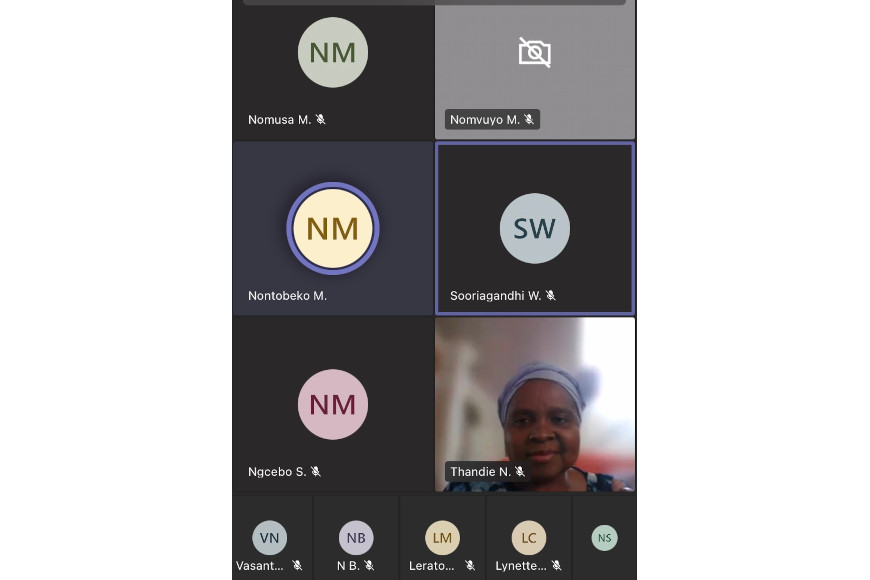The Student Health and Wellness Centre at the Durban University of Technology (DUT) hosted a webinar on Cancer Awareness During the Covid-19 Pandemic on Microsoft Teams, last Thursday, 12 August 2021.
In her opening remarks, Sister Soorie Wardthen, Clinic Manager, emphasised that cancer concerns everyone. “Just like the COVID-19 pandemic, Cancer does not care who we are and where we live,” she said.
DUT’s Dr Shalon Naidoo, part-time medical practitioner’s presentation focused on early detection of cancer and prostate cancer. “Cancer has been around for thousands of years. It can start in any cells in the body. Most cancers are caused by tobacco and diet. Symptoms of cancer can all be related to other diseases, the first one being unusual lumps swelling which is usually painless and may increase in size, consistent coughing, breathlessness, difficulties in swallowing. Unexplained weight loss and fatigue are two very common symptoms found in cancer,” said Dr Naidoo.
Looking at the warning signs of prostate cancer, Dr Naidoo looked at the five signs. He said they are: frequently urinating, blood in urine, back pain, bowel problems and pains in the groin area.
“Once a diagnosis is made, further investigation is needed, then you must be attended to by a specialist. Most of the time when they feel like there is an issue, the first intervention would be a biopsy, then to move forward to regulation of the hormones and chemotherapy,” said Dr Naidoo.
Presenting on breast and cervical cancer was Dr Ayanda Gwala. Dr Gwala is a medical doctor (general practitioner) at Mahatma Gandhi hospital “Factors you cannot change include gender, age, genetic and reproductive history, having previous radiation to the chest area, be it for a breast problem or lung problem, any previous exposure to that area will increase your risk for breast cancer. If you have developed breast cancer before, you are most likely to develop it again. Risk factors for cervical cancer would be family history, Chlamydia causes pelvic inflammation and increased risk of Human Papillomavirus (HPV) growth and cancer, a weakened immune system, long term use of oral contraceptives, pregnancy at a young age. Dr Ayanda Gwala stressed that obesity, taking hormonal supplements as well as alcohol use, are also some of the risk factors that one can change.
Obstetrician gynaecologist specialist, Dr Mala Panday spoke on the importance of pap smears and regular examinations.
DUT’s Dr Vasanthrie Naidoo presentation focused on the psychological management of Cancer patients. “The three healthy emotional response phases include initial reaction, distress and adjustment. Normal reactions to an abnormal situation are denial, anger, bargaining, depression, and acceptance. These phases can be prolonged and vary from person to person and can bounce backwards and forwards until eventually the affected person accepts his or her condition,” explained Dr Naidoo.
Sister Nomusa Mhlongo, a senior professional nurse at DUT presented on Breast Self-Examination
DUT’s Dr Nellie Naranjee, a lecture at Nursing Science department addressed COVID-19 and workplace challenges. The nursing clinical co-ordinator, Sr Shamila Moonsamy’s presentation addressed COVID-19 Vaccinations and the different types of vaccines.
Pictured: Attendees at the webinar
Nikiwe Sukazi


